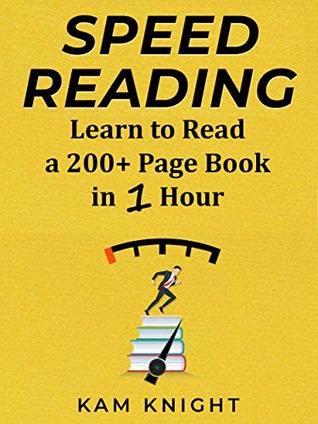More on this book
Community
Kindle Notes & Highlights
Two universal examples include: What can I get out of this material or How will reading it help me?
And we respond not based on the actual question someone asks, but on the question the mind believes is being asked.
This means that we interpret what we read not always based on the actual text, but often on what our mind predicts the text is going to say—sometimes based on what the mind wants it to say.
no need to force yourself to read each and every sentence; take in what you can and skip areas that have little to no interest.
appeal. If it’s for pleasure, do what is pleasing.
That means pay extra attention to earlier parts of books, stories, and novels, as that’s where the foundational elements are developed.
you learned three activities one should do before beginning any reading task: define purpose, preview, and change reading style.
The eye has the ability to process an image both as a whole and as a collection of individual parts.


